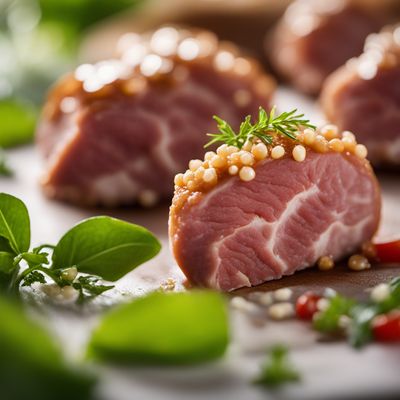
Ingredient
Duck fresh meat
The Delicate Delight: Succulent Duck Fresh Meat
Duck fresh meat is characterized by its tender, juicy flesh and a rich, distinctive flavor. The meat is darker and fattier than chicken, with a melt-in-your-mouth texture. Its skin is prized for its crispy and flavorful qualities when properly cooked. Whether roasted, grilled, or braised, duck meat offers a delightful combination of savory and slightly sweet notes that pair well with a range of ingredients and seasonings.
Origins and history
Duck meat has a long history in culinary traditions around the world. It is believed to have originated in East Asia, particularly in China, where it has been consumed for thousands of years. Ducks were domesticated for their meat and eggs, and their popularity spread to other regions through trade and migration. Today, duck meat is enjoyed in various cuisines, including French, Chinese, and Middle Eastern. It is often associated with festive occasions and special celebrations.
Nutritional information
Duck meat is a good source of protein and essential nutrients such as iron, zinc, and vitamin B12. It is also higher in fat compared to other poultry meats, which contributes to its rich flavor and tender texture. A 3-ounce (85g) serving of roasted duck meat provides approximately 180 calories, 20 grams of protein, and 8 grams of fat.
Allergens
Duck meat may cause allergic reactions in individuals with poultry allergies. It is important to exercise caution and consult with a healthcare professional if you have any known allergies or sensitivities.
How to select
When selecting duck fresh meat, look for plump breasts and firm, moist flesh. The skin should be smooth and free from blemishes or discoloration. Avoid meat that appears dry or has an unpleasant odor. If possible, choose organic or free-range duck meat for better quality and flavor.
Storage recommendations
To maintain the freshness and quality of duck meat, store it in the refrigerator at a temperature below 40°F (4°C). Keep the meat in its original packaging or wrap it tightly in plastic wrap to prevent air exposure. Use the meat within 2-3 days of purchase or freeze it for longer storage. Thaw frozen duck meat in the refrigerator before cooking.
How to produce
Duck meat can be produced by raising ducks in a suitable environment with access to clean water and a balanced diet. It requires proper care and attention to ensure the ducks are healthy and free from diseases. Consult with local agricultural authorities or experienced farmers for specific guidance on duck farming.
Preparation tips
Duck meat can be prepared in various ways, including roasting, grilling, braising, or confit. For roasting, score the skin and season with salt and spices to enhance the flavor. Cook at a high temperature initially to render the fat and achieve a crispy skin, then reduce the heat to cook the meat evenly. Duck meat pairs well with fruity or tangy sauces, herbs like thyme or rosemary, and ingredients like oranges or cherries. It is commonly used in dishes like Peking duck, duck confit, or duck à l'orange.
Substitutions
Chicken meat can be used as a substitute for duck meat in some recipes, although the flavor and texture will differ. For a vegetarian option, portobello mushrooms can provide a meaty texture and earthy flavor similar to duck. However, it is important to note that these substitutions may not replicate the exact taste and characteristics of duck meat.
Culinary uses
Duck meat is widely used in various cuisines around the world. It is a popular choice for classic dishes like Peking duck, duck confit, or duck à l'orange. Duck breasts can be pan-seared and served with a fruit-based sauce for an elegant main course. The rendered duck fat is highly prized for its flavor and is often used for cooking potatoes or vegetables. Duck meat can also be incorporated into salads, stir-fries, or pasta dishes to add a unique twist.
Availability
Duck meat is commonly available in regions where duck farming is prevalent, such as China, France, the United States, and Southeast Asian countries. It can be found in specialty meat markets, gourmet grocery stores, or Asian supermarkets. In some regions, duck meat may be more readily available during festive seasons or specific times of the year.
More ingredients from this category
Recipes using Duck fresh meat » Browse all

Pappardelle with White Duck Ragù
Savory Delight: Pappardelle with Creamy Duck Ragù

Roasted Duck with Orange Glaze
Citrus-infused Delight: Roasted Duck with Tangy Orange Glaze
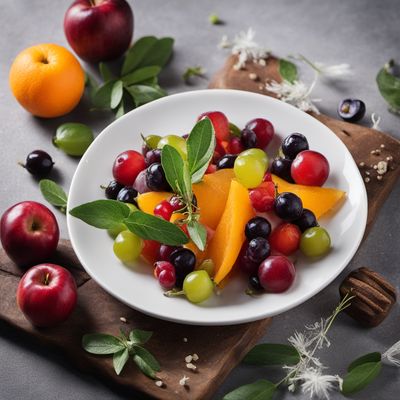
Papero alla Frutta with a Twist
Fruity Duck Delight
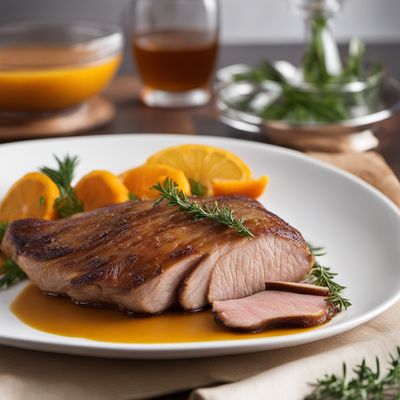
Roasted Duck with Orange Sauce
Citrus-infused Delight: Roasted Duck with Tangy Orange Sauce
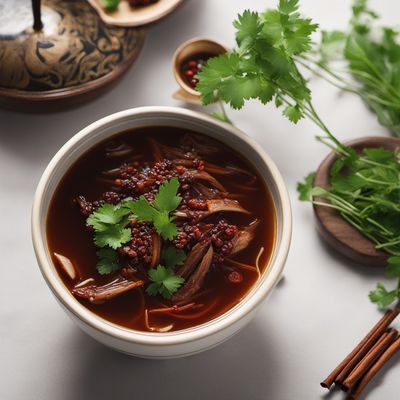
Guangxi-style Duck Blood Soup
Savory Delight: Guangxi-style Duck Blood Soup
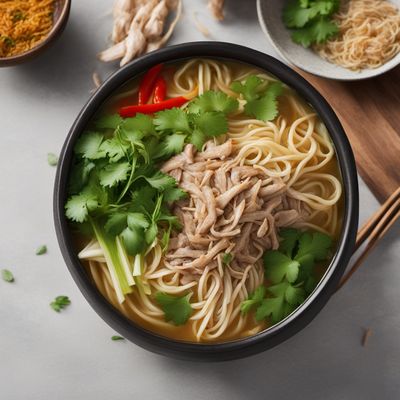
Bamboo Shoot Duck Noodle Soup
Savor the Flavors of North East India with Bamboo Shoot Duck Noodle Soup
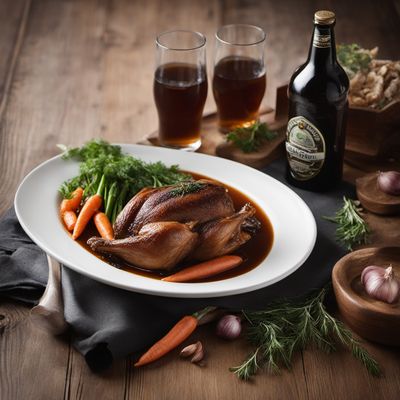
German Beer Braised Duck
Biermeister's Delight: German Beer Braised Duck with Rich Gravy

Caterpillar Fungus Duck Stir-Fry
Savory Delight: Caterpillar Fungus Duck Stir-Fry
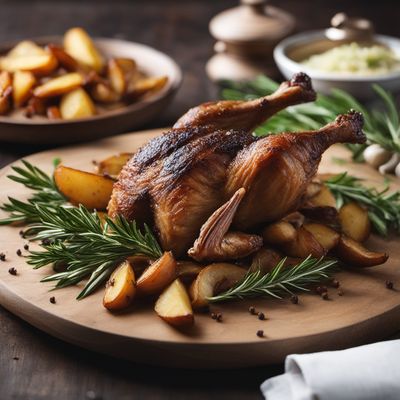
Crispy Occitan Duck
Duck Confit Occitan Delight
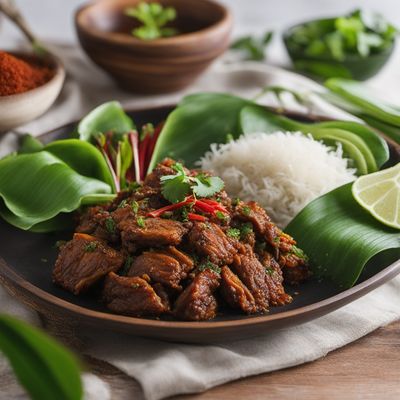
Banjar-style Duckanoo
Savory Delight: Banjar-inspired Duckanoo
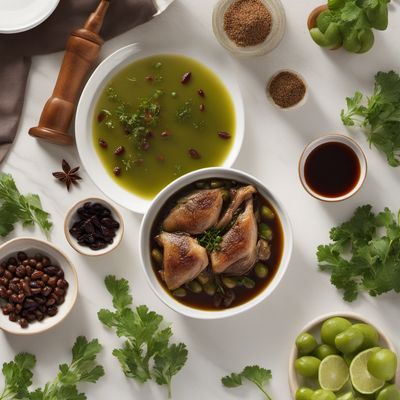
Haipai-style Olive Duck
Savory Haipai Delight: Olive-infused Duck

Pappardelle Fusion Delight
Savory Duck Pappardelle with a Global Twist
